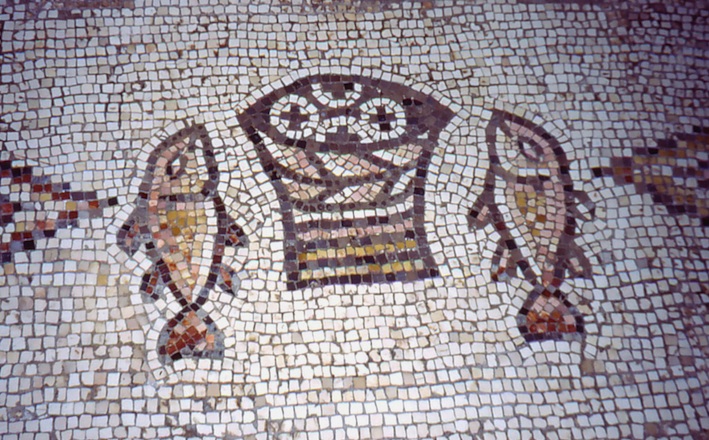Commentary on Isaiah 55:1-5
Revivalism heavily influenced the Christian tradition in which I was raised and in which I served for much of my career.
In that tradition, the invitation hymn is a regular part of the worship service. The hymn, which follows the sermon, is an opportunity for people to come forward in response to the Spirit’s prodding (and perhaps the preacher’s pleading).
Isaiah 55:1-5 sounds like an invitation hymn. Think of it as an ancient “Just As I Am.”
The Audience
This “hymn’s” invitation was offered originally to exiles in Babylon by an anonymous (to us, but probably not to them) prophet whose words are found in Isaiah 40-55. People from Judah had been in exile there since the Babylonian invasions of the early sixth century B.C.E. Now, later in that century, the opportunity to go home was in sight, since Cyrus of Persia, who had less restrictive policies than the Babylonians toward subject peoples, was on the move (see Isaiah 44:28; Ezra 1:1-4). Maybe a few people were still around who remembered Judah, but most of the people hearing these words had never seen the land of their ancestors.
How can we lead our listeners to imagine themselves as exiles? It seems a necessary effort if we want them to experience this text appropriately. Maybe it doesn’t take a lot of imagination. The plight of exiles (refugees, immigrants) fills the news. Many of our communities are home to people who have been forced to leave their native lands. Some of our churches play an active role in resettling refugees.
But we need to be careful about drawing too straight a line from the exiles of Second Isaiah’s time and the refugees of ours. I say that because the prophet assumes that his audience deserves its exile. They are where they are because of their sins. There was more to it than that. Geopolitical realities had a lot to do with it; empires do what empires do. Still, the prophet (along with many other biblical voices) interprets the exile as God’s judgment. We don’t want to imply that exile is necessarily a judgment for sin. (Although we could make a strong case that most forced exiles result from corporate sin, especially that of the ones forcing people into exile.)
So we need to ask ourselves: in what sense are our congregations experiencing exile? In what sense are they looking to go home?
The Offer
God offers the exiles the realities that make for real and abundant life. If they will respond positively to God’s invitation, they will “live” (verse 3a). In presenting God’s offer, the prophet makes use of food and drink symbolism. Food and water are essential to human life. So the prophet begins, “Ho, everyone who thirsts, come to the waters; and you that have no money, come, buy and eat!” (verse 1a). But the offer goes beyond the basics: “Come, buy wine and milk without money and without price” (verse 1b). “Rich food” (verse 2b) is available. The life God offers is full and rich.
It is full and rich because it is based on God’s grace and love. The “rich food” God offers the exiles in which they are called to “delight” (verse 3b) is “an everlasting covenant, my steadfast, sure love for David” (verse 5b). God offers to let the people be the means through which the promises made to David will continue. Those promises also continued through Jesus and continue to continue through the church.
And it’s all free. God offers all of this “without money and without price” (verse 1b). We get what we don’t pay for. All we have to do is accept what God offers.
An offer we can refuse
It’s a mystery why anybody would say no to such an offer. No doubt many in the prophet’s time did. Maybe some of them were as suspicious of a free offer as some of us are. Twenty-five years ago, my family moved and needed to find a bank where we could deposit our less-than-considerable funds. One bank had billboards advertising “really free checking.” I called the nearest branch and asked the lady who answered, “Would you please tell me about this really free checking?” She replied, “It’s really free!” And it really was. The account carried no fees.
But we were required to be responsible. We couldn’t write checks that we didn’t have sufficient funds to cover, for example. The prophet calls the exiles to take up the responsibility that would come with receiving the free gift. Like David, they were to be “a witness to the peoples” (verse 4a) and to “call nations that you do not know” (verse 5a). We might think that God’s gift being free would entice us all to receive it, but some of hesitate because it occurs to us that if it’s free for us, it’s free for everybody. And we’re not sure we want to be with everybody.
Matthew 14:13-21 is this week’s Gospel reading. It tells the story of the feeding of the five thousand, which is the only miracle of Jesus that all three Synoptics and John’s Gospel report. There is no indication that anyone in the crowd turned down the free food. In John’s account, the crowds caught up with Jesus the next day, and he asked them, “You are looking for me, not because you saw signs, but because you ate your fill of the loaves. Do not work for the food that perishes, but for the food that endures for eternal life, which the Son of Man will give you” (John 6:26-27a).
There’s bread, and then there’s rich food.
The rich food leads to real life that receives and shares God’s grace.


August 6, 2017